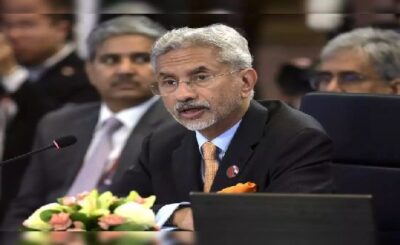Is it possible to increase production and uphold Paris Climate Agreement?
-: R Muthu Kumar :–
Countries and oil companies at the UN climate talks have promised to make major progress in tackling global warming in a large new energy pledge.
Around 100 countries promised to treble world renewable energy use by 2030. And 50 oil and gas companies including Saudi giant Aramco pledged to stop adding to planet-warming gases by 2050.
Countries pledging to triple renewable energy at the COP28 summit in Dubai said it would help remove fossil fuels from the world’s energy system by 2050 at the latest.
While many national oil companies have adopted net zero 2050 targets for the first time it is vital for the entire industry to keep 1.5C within reach and set even stronger ambitions for decarbonisation.
Decarbonisation Charter will speed up climate action as oil and gas companies that account for 40% of the world’s emissions promise to become net zero by 2050.
Reaching net zero means stopping adding greenhouse gases into the atmosphere. That means the only way to ‘decarbonize’ carbon-based oil and gas is to stop producing it “quickly, completely, and permanently”, experts explain.
The 50 companies, which also include the UAE’s state oil company, also pledged to almost entirely stop releasing the potently planet-heating gas methane during oil and gas production by 2030.
The fossil fuel industry should reduce its emissions from production by 2030, a clear 20 years earlier than the date promised.
That only covers emissions from production, not the burning of fossil fuels and critics said it would not meaningfully tackle climate change. They account for around 15% of global emissions much before we count the gases given off when their products are used to power vehicles and heat homes!
The UAE’s presidency of the COP28 talks has attracted criticism because the country is one the top 10 oil and gas producers in the world and the summit’s president Sultan al-Jaber also heads the giant Abu Dhabi National Oil Company (Adnoc).
The big poser was the oil firms are facing a moment of truth at the ongoing Dubai summit, Is it going to be partnering with the rest of the world.. Or is it going to stick to their business plans?
COP28 President Sultan al-Jaber said the new pledge “adds up to more countries and more companies from more sectors than ever before, all aligning with our North Star of 1.5C”.
World leaders agreed in Paris in 2015 to limit global warming to that amount.
Burning huge amounts of oil, gas and coal is driving climate change but leaders cannot yet agree on how fast the world should stop using them.
Cause for concern
Longer heatwaves, well even a small increase to average temperatures makes a big difference.
This is because the whole distribution of daily temperatures shifts to warmer levels, making hotter days more likely and more extreme.
the intense heatwaves that hit southern Europe and the southern US and Mexico in July 2023 would have been “virtually impossible” without human-caused climate change, according to the World Weather Attribution network (WWA).
But these events are no longer rare. If global warming reaches 2C above the pre-industrial period – before humans started burning fossil fuels at scale – these events are expected to happen every two to five years, the WWA warns.
And longer and more intense heatwaves can worsen droughts by drying out soil. This makes the air above warm up more quickly, leading to more intense heat. Extreme wildfires are projected to become more frequent and intense in future across the globe, as climate change is making the weather conditions needed for wildfires to spread more easily.
Alarming fact in reality is the country hosting COP28 climate talks aimed at cutting fossil fuel emissions is massively ramping up its own oil production! The United Arab Emirates’ state oil firm Adnoc may drill 42% more by 2030.








